Controversial Endings in Boxing History
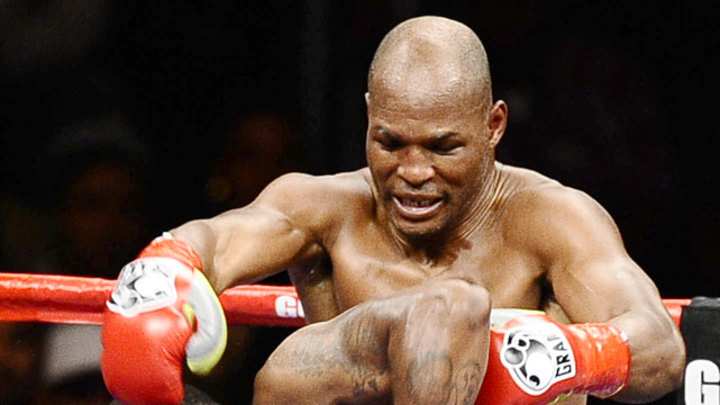
Controversial Endings in Boxing History
Oct. 15, 2011

The light heavyweight champion Hopkins (rear) suffered a separated shoulder when Dawson lifted and threw him down to the canvas in the second round of a title fight. Unable to continue, Hopkins was stopped for the first time in 61 pro fights when referee Pat Russell denied the Philadelphian's claims of a foul and ruled it a technical knockout. (The ruling may be reversed pending review by the California state commission.)
Sept. 17, 2011
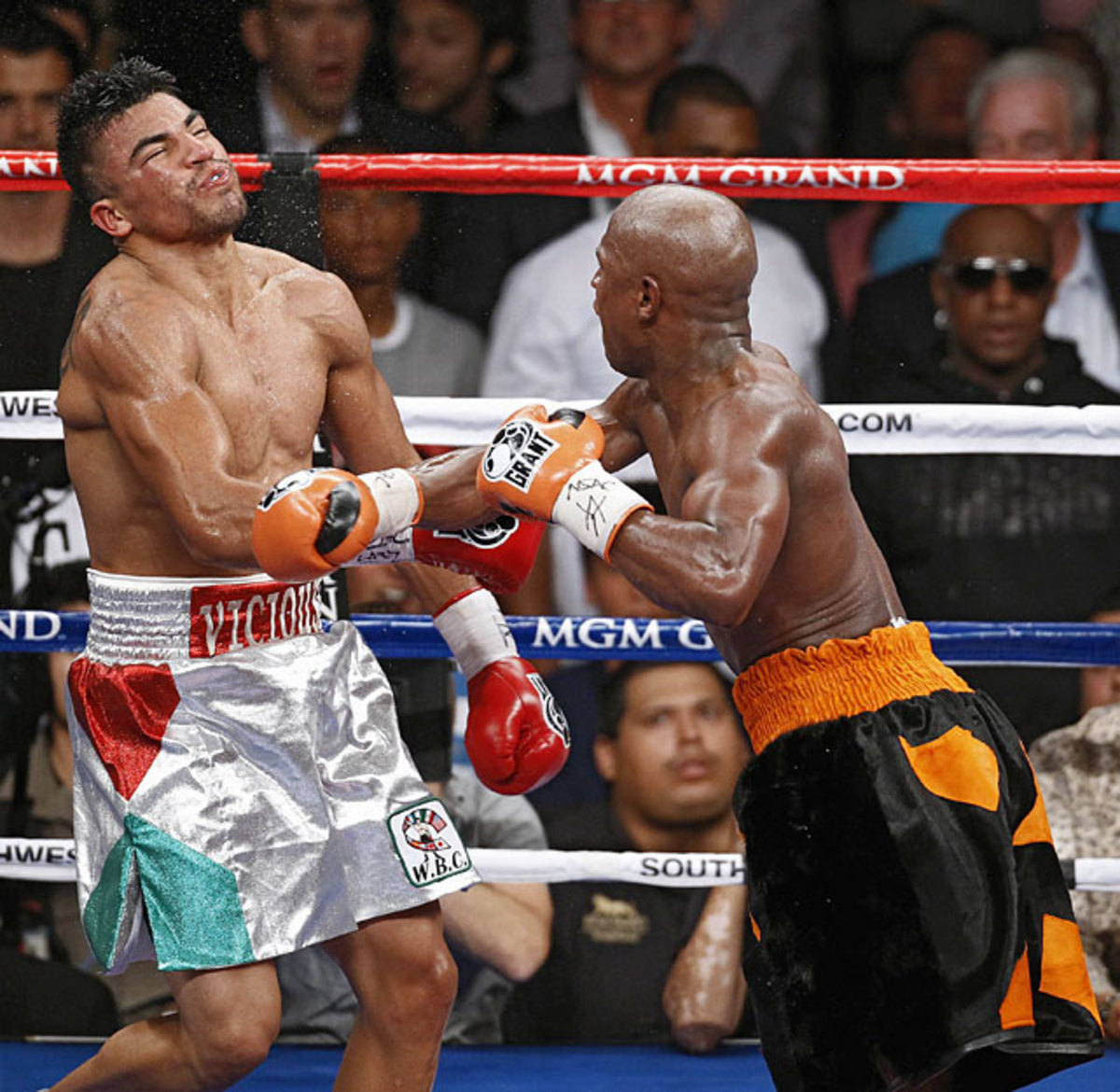
When Ortiz tried to intentionally head-butt Mayweather late in the fourth round of their welterweight title fight, referee Joe Cortez immediately called time to deduct a point. After the fighters touched gloves several times and moved to the center of the ring, Ortiz looked toward Cortez for a signal to restart. That's when Mayweather stepped back and uncoiled a vicious left-right combination that ended the fight. Unsportsmanlike? Perhaps. Legal? Without a doubt.
June 28, 1997
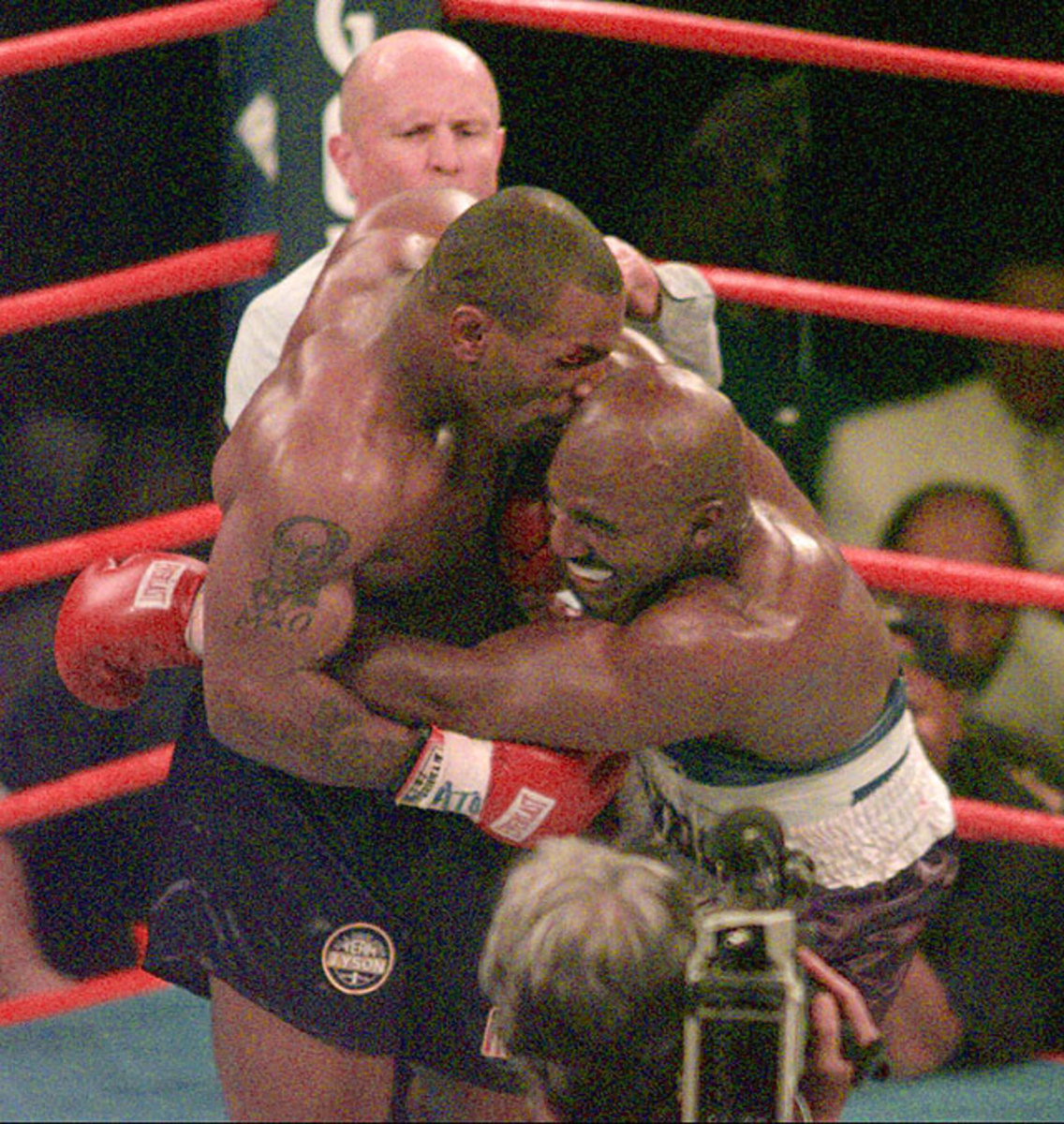
In the much-anticipated rematch of their unforgettable 1996 heavyweight title fight, Tyson savagely bit Holyfield on the right ear to earn a two-point deduction from referee Mills Lane. When Tyson followed it up moments later by biting Holyfield's left ear, Lane had no choice but to disqualify the former champ. Tyson was fined $3 million and had his boxing license revoked by the Nevada State Athletic Commission.
Feb. 6, 1997
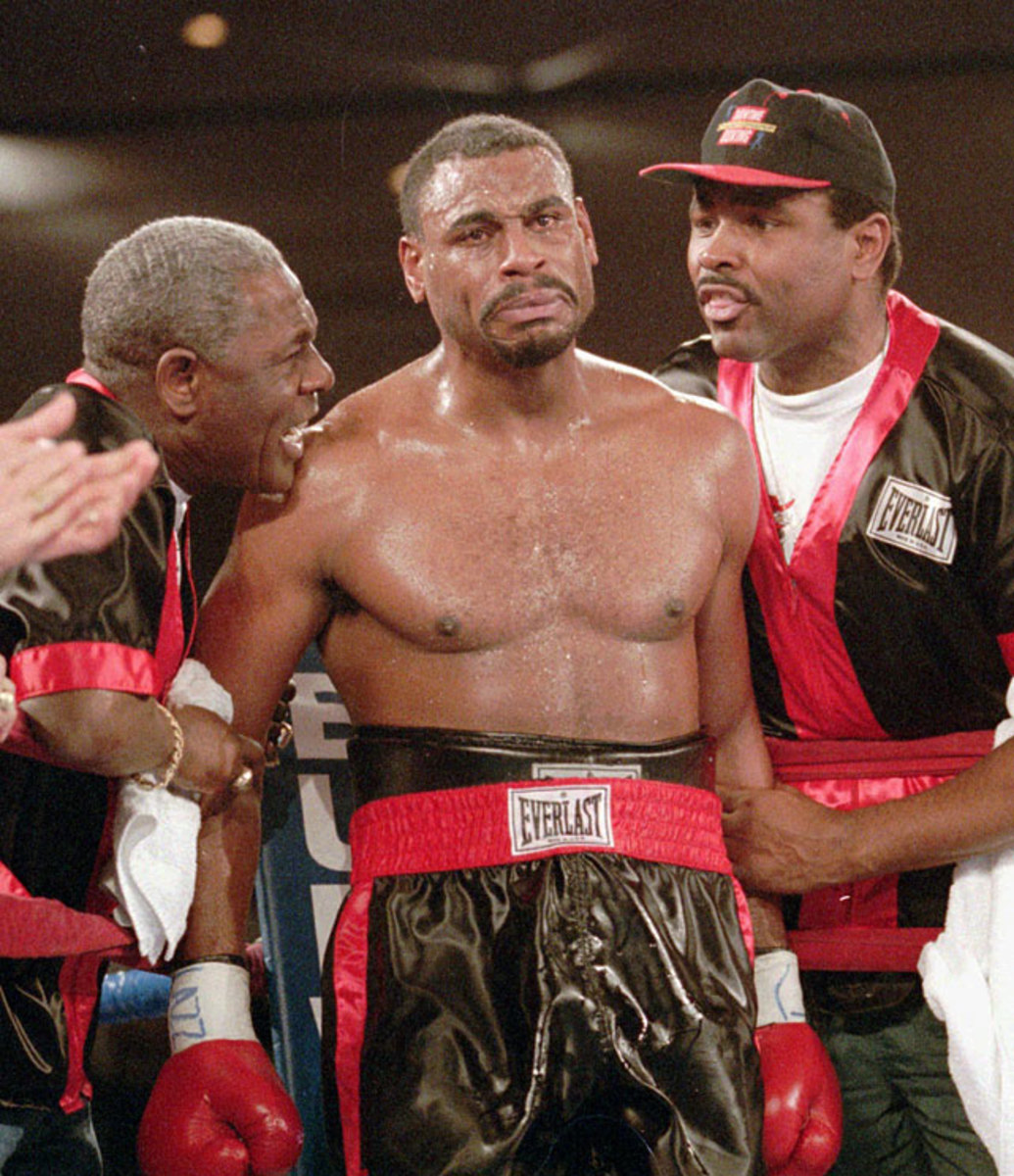
Three years after McCall knocked out Lewis for the heavyweight title in a stunning upset, the fighters met again in Las Vegas for the vacant WBC strap. Lewis won the opening rounds fairly easily before McCall appeared to suffer a meltdown in the ring, breaking down into tears during the fifth round. Referee Mills Lane had no choice but to stop the fight when McCall made no attempt to fight or protect himself.
Dec. 14, 1996
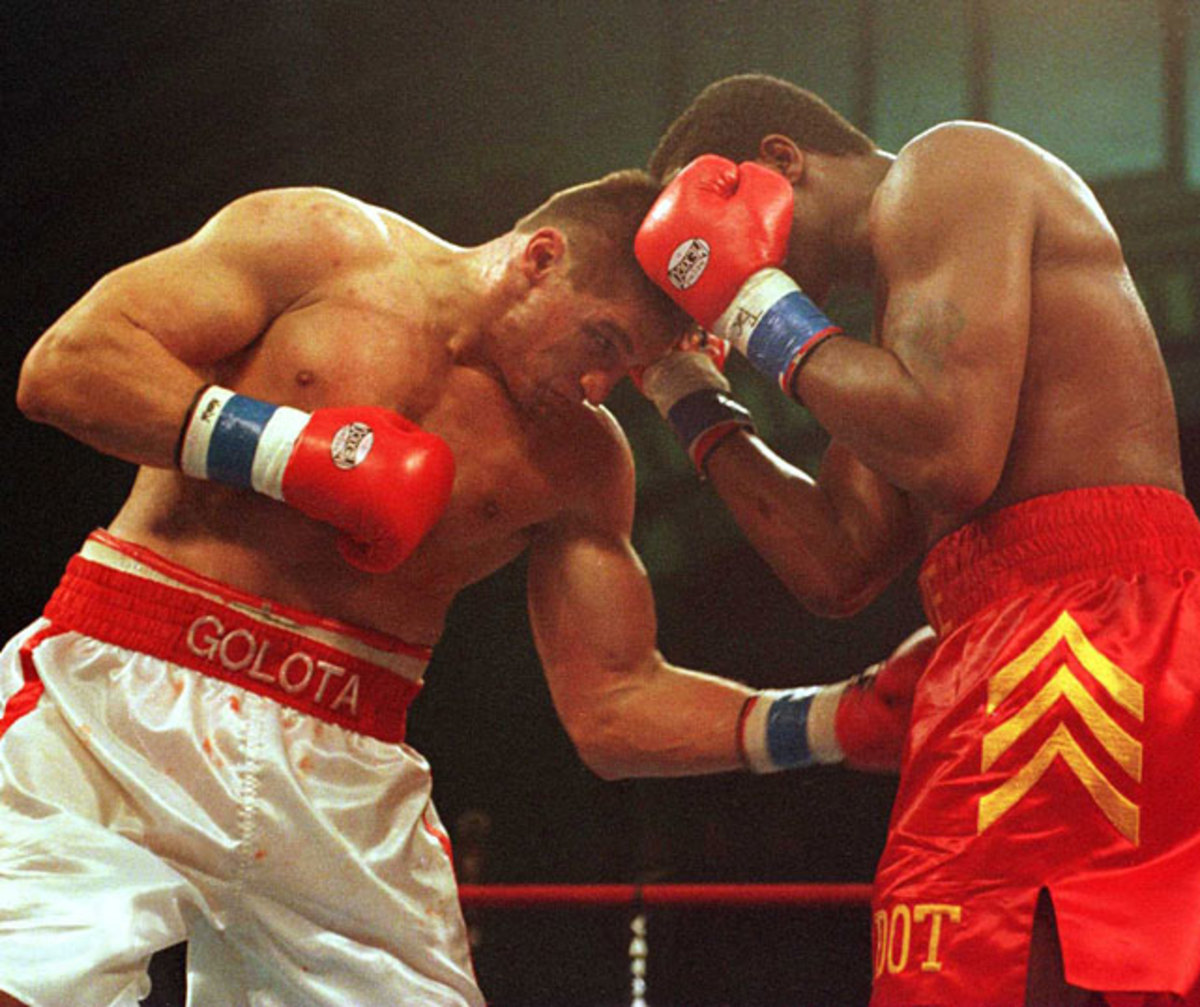
Golota was in control and ahead on the judges' scorecards when he was disqualified in the ninth round after being warned repeatedly for hitting Bowe with low blows. Yet the controversal finish in Atlantic City was nothing compared to ...
July 11, 1996
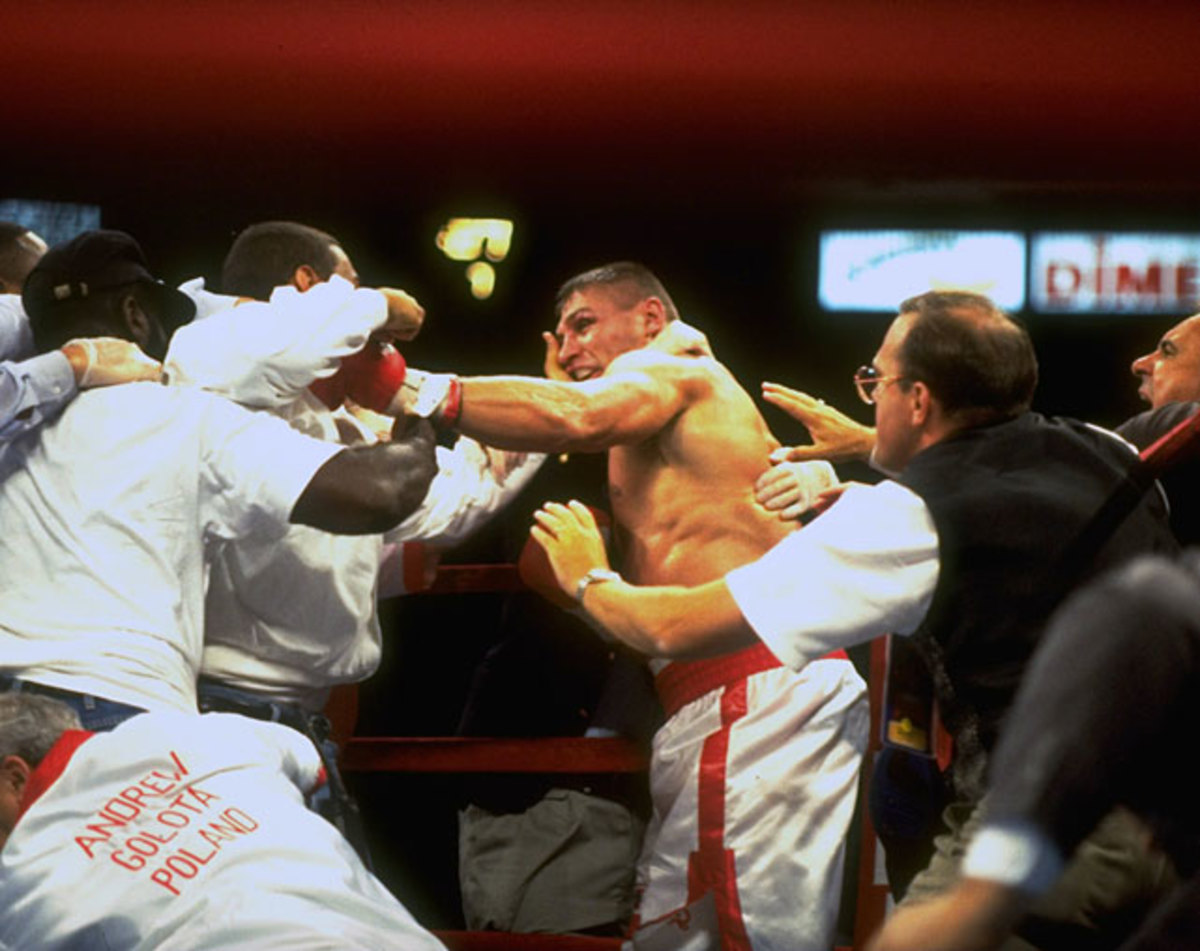
... the first fight between Bowe and Golota, at Madison Square Garden, where the undefeated challenger was also disqualified for excessive low blows. In the aftermath, Bowe's entourage crashed the ring and attacked Golota, cracking him with a two-way radio and opening a gash that required 11 stitches. The incident prompted a melee that saw pockets of violence erupt throughout the arena.
March 17, 1990
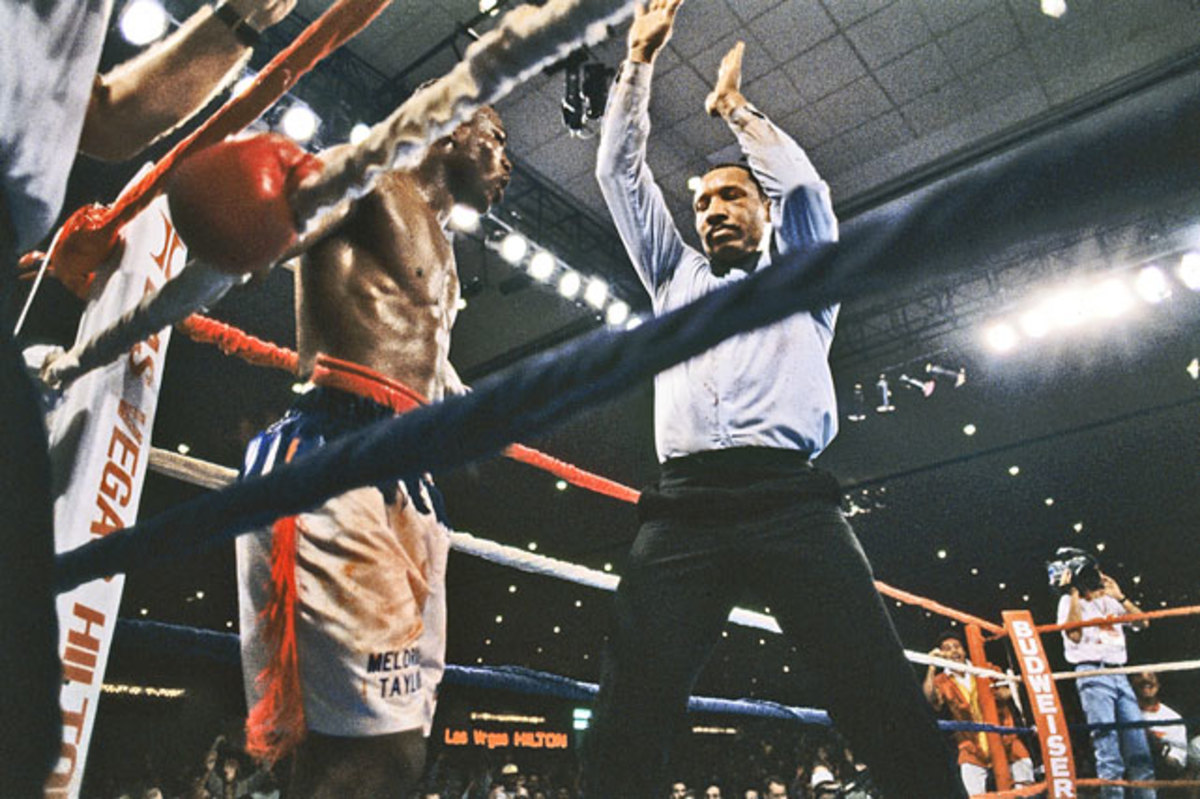
Taylor was 24-0-1 and Chavez was 66-0 with 58 KOs entering their junior welterweight unification fight. For 11 rounds, Taylor outlanded and outclassed Chavez, though the Mexican appeared to be landing the more powerful blows. With a lopsided lead on two of the scorecards, Taylor just needed to finish the fight on his feet. Late in the final round, Taylor was knocked down but made it to his feet. That's when referee Richard Steele, unsatisfied with Taylor's condition, stopped the fight with two seconds remaining and declared Chavez the winner.
Dec. 10, 1982
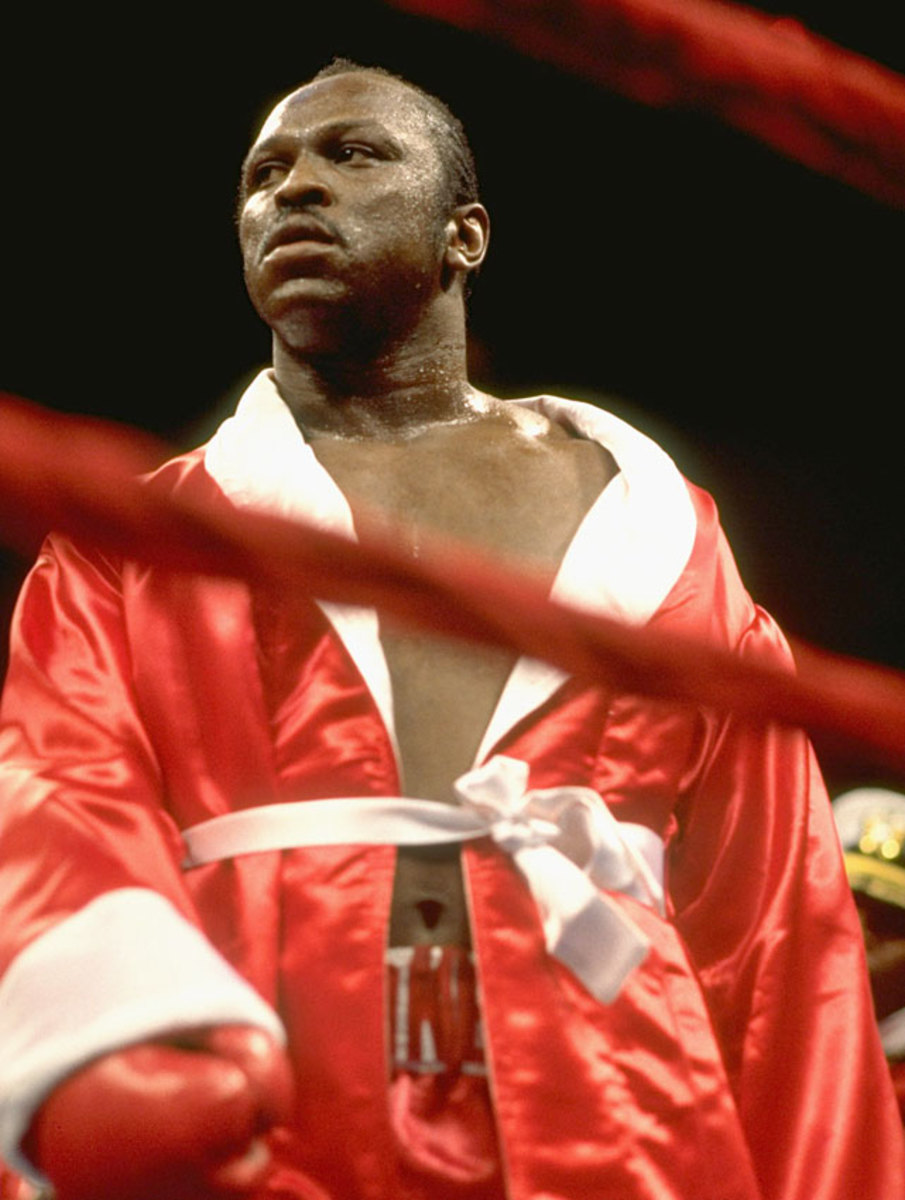
The WBA heavyweight champion Weaver suffered a first-round knockdown against lightly regarded Michael Dokes (pictured). He made it up fairly easily, but referee Joey Curtis inexplicably stopped the fight after just 63 seconds. "They shouldn't have stopped it," ringside physician Dr. Donald Romeo said. "The referee was wrong. Weaver was fine."
Nov. 25, 1980
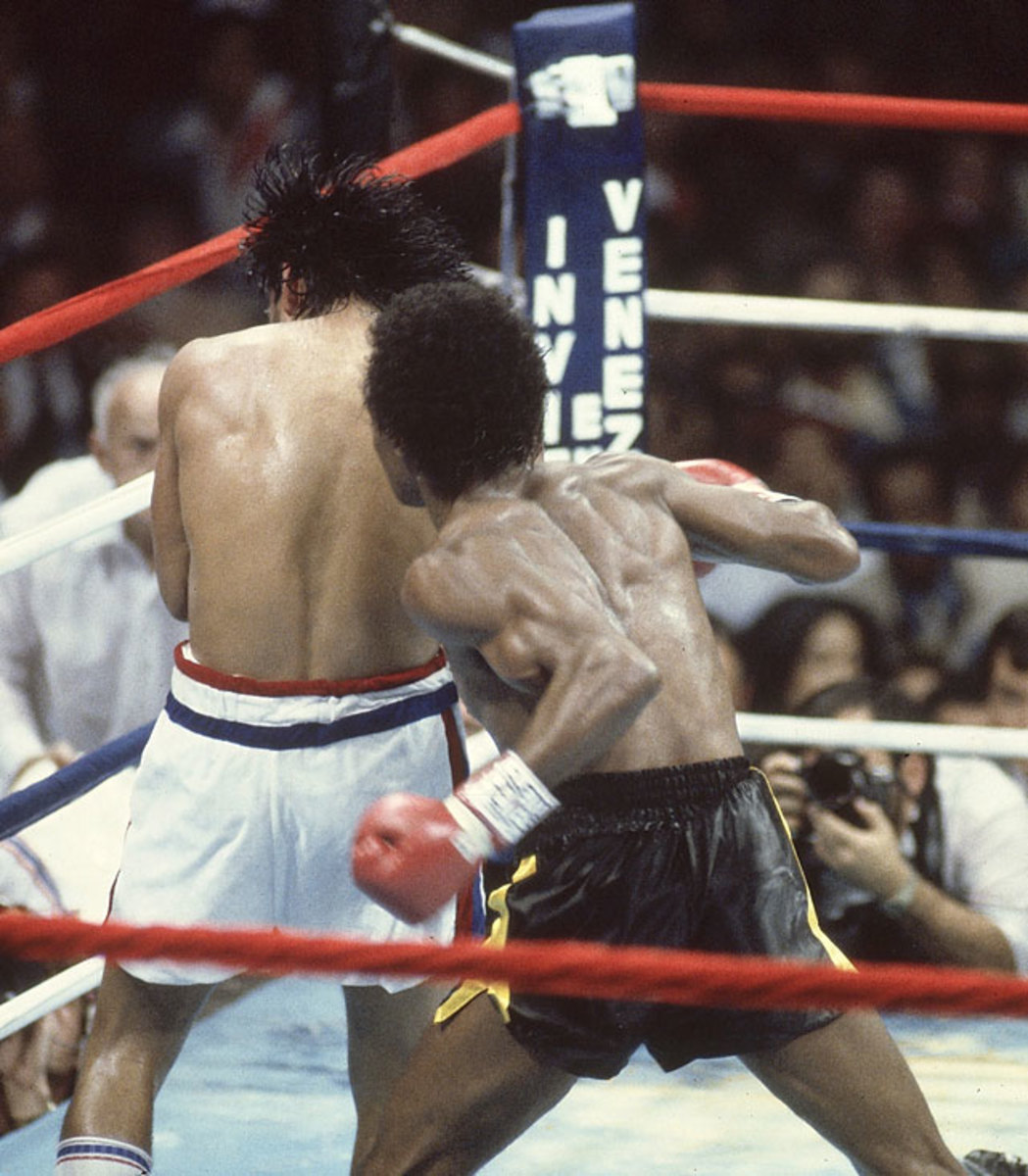
Five months after he outpointed Leonard for the welterweight title in Montreal, Duran was outboxed in spectacular fashion through seven-and-a-half rounds of the return bout. That's when Duran abruptly turned his back and refused to continue, handing Leonard a TKO victory in what came to be known as the no mas fight. Few gave much credence to Duran's claims of stomach cramps, instead focusing on the incomprehensible surrender of one of boxing's all-time hard men. "It was bizarre to witness so swift and devastating a collapse of a man's name," Sports Illustrated 's William Nack wrote. "And what a name it was."
June 26, 1972
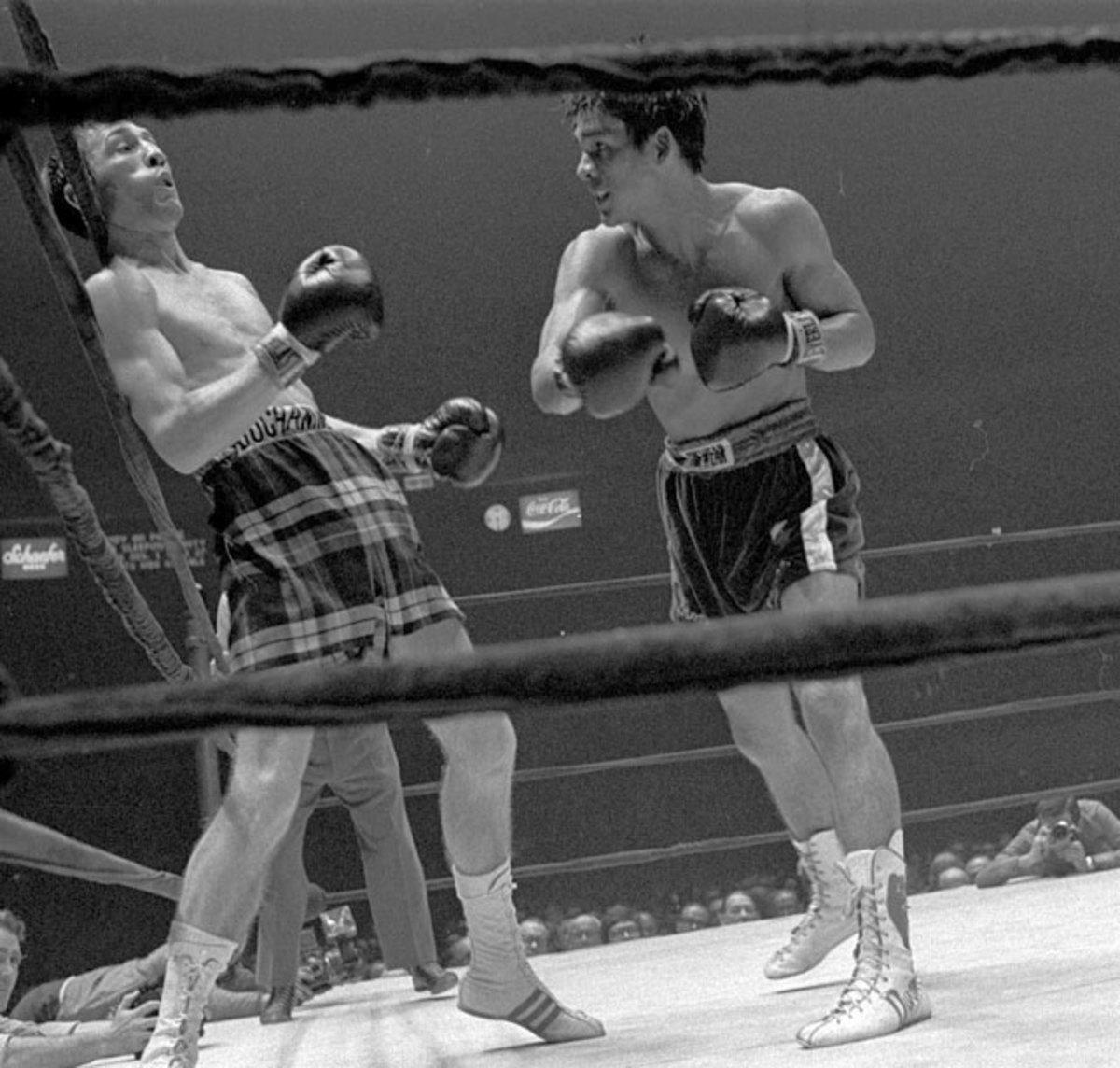
Duran was winning soundly en route to the lightweight championship, but the final blow of the bout was clearly low and left Scotland's Buchanan crumpled on the canvas. The referee basically ignored him and ruled it a knockout. It might not have been an unjust result, but the foul itself did cause some controversy.
May 25, 1965
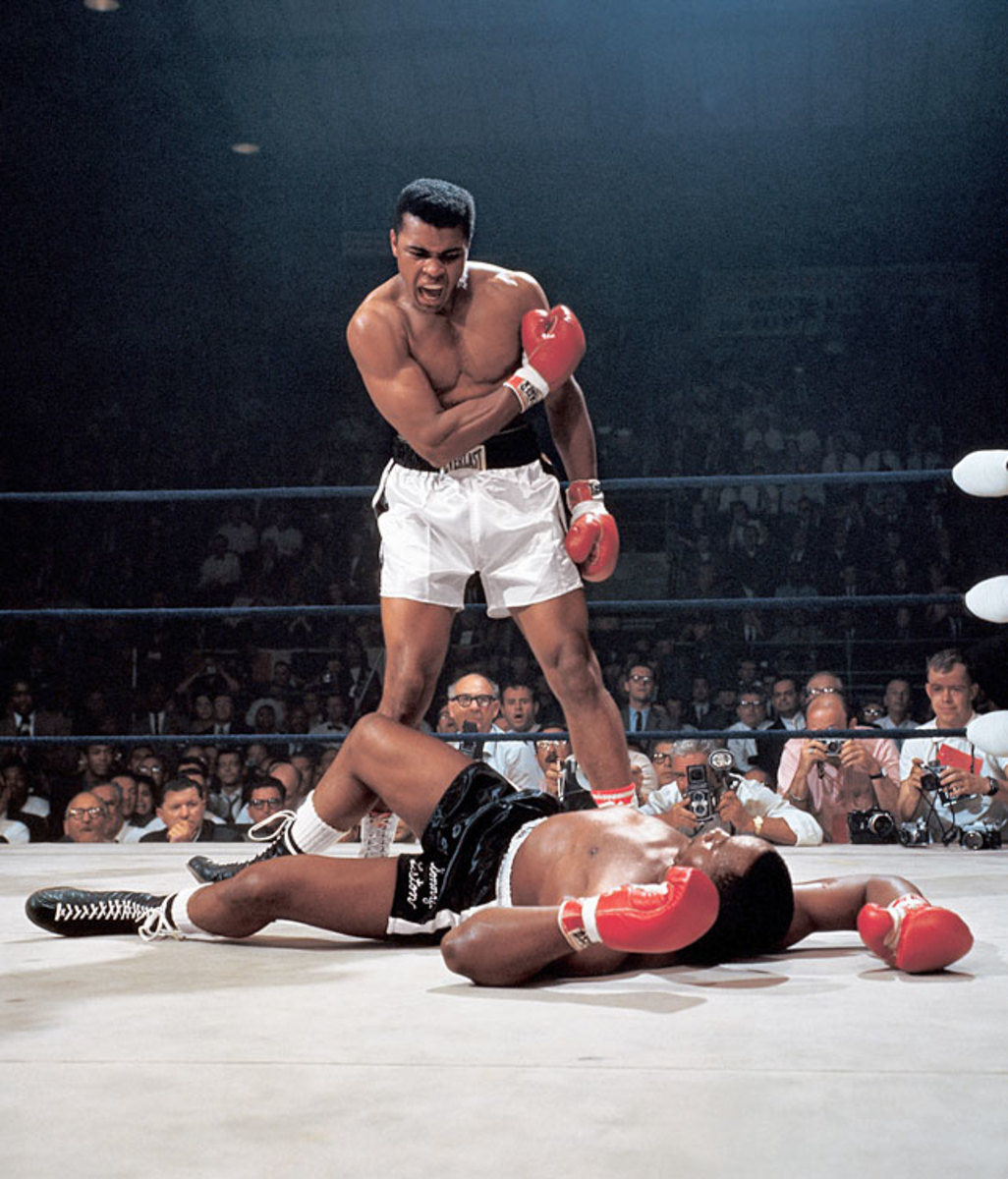
Many cried fix when Ali floored Liston with a "phantom punch" early in the heavyweight title rematch in Lewiston, Maine. Few could believe Ali's short right hand could have knocked out a flyweight, let alone a champion as sturdy and feared as Liston.
Dec. 6, 1930
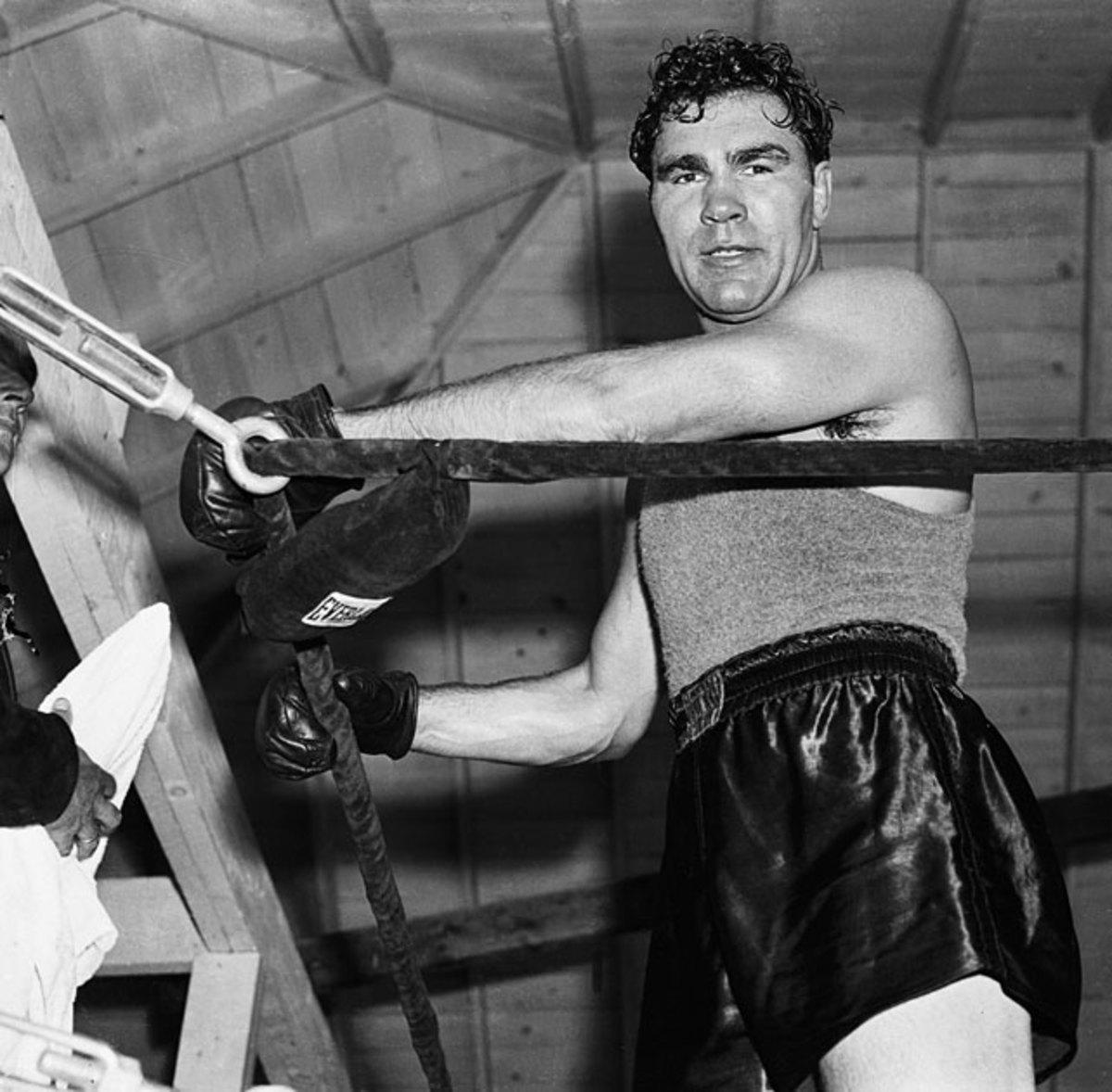
Germany's Schmeling became the first and only heavyweight to win the championship on a foul when Sharkey was disqualified for a low blow in the fourth round of their fight at Yankee Stadium.
June 21, 1927
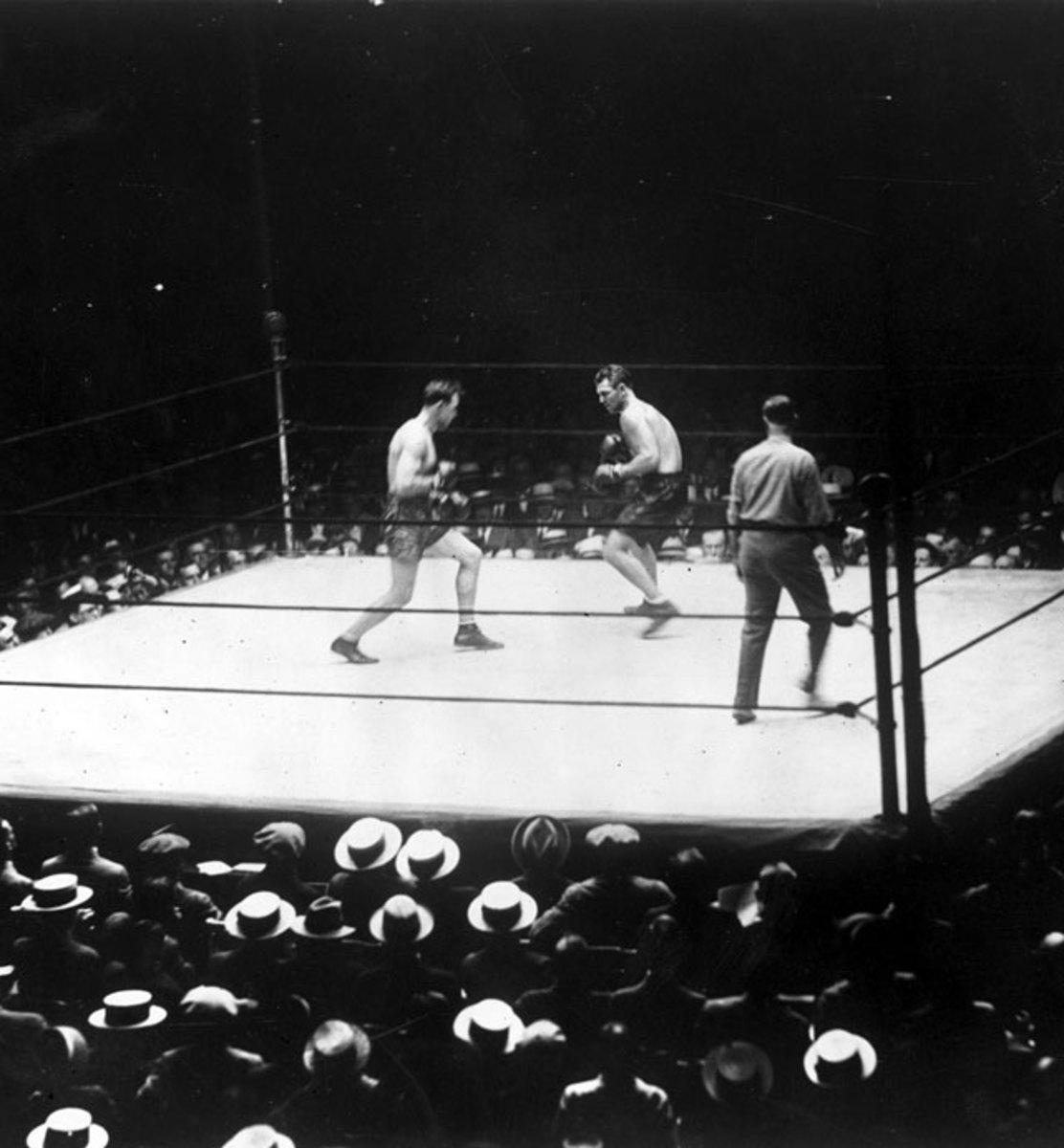
When Sharkey turned to the referee to complain of a low blow, Dempsey flattened him with a beautiful left hand. A major controversy ensued, but it enabled Dempsey to get the rematch with Gene Tunney that became The Long Count Fight.
July 4, 1912
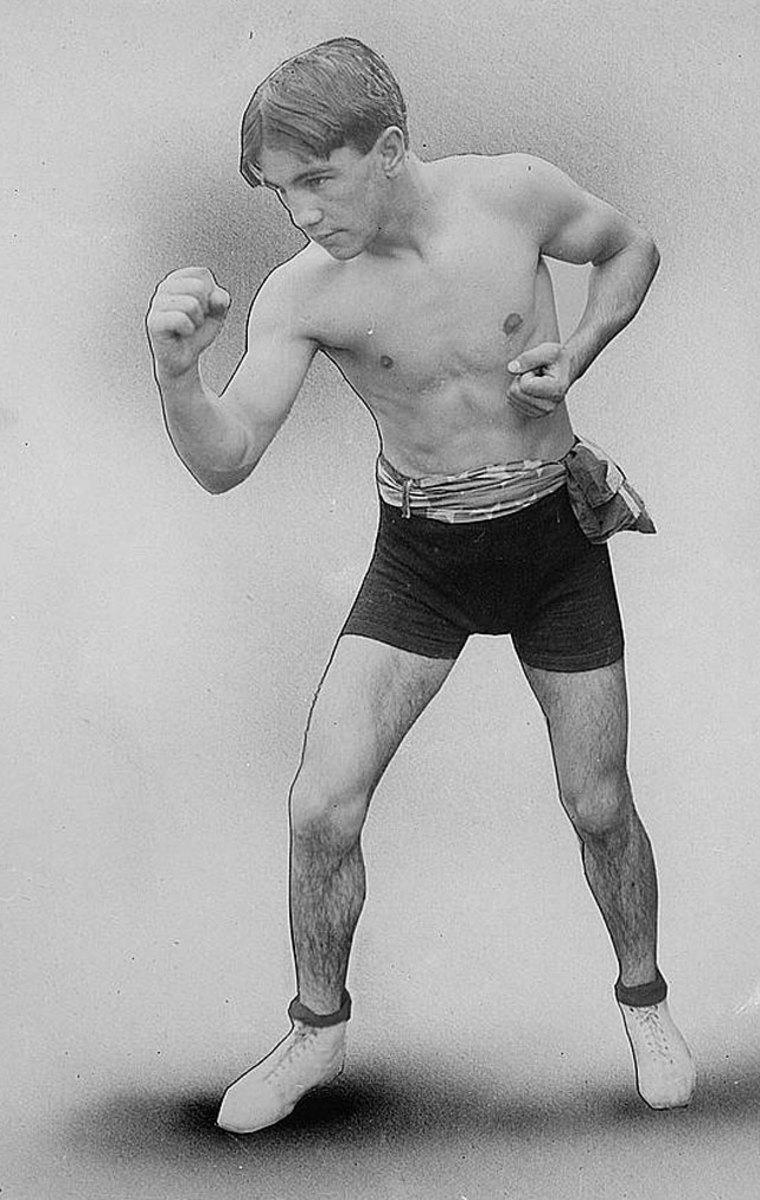
When Wolgast (pictured) defended his lightweight title against Rivers in Los Angeles, the bout was ended when the fighters connected with simultaneous blows and knocked each other out. Referee Jack Welch later awarded the victory to Wolgast, claiming he'd started to rise before the completion of the 10-count.
